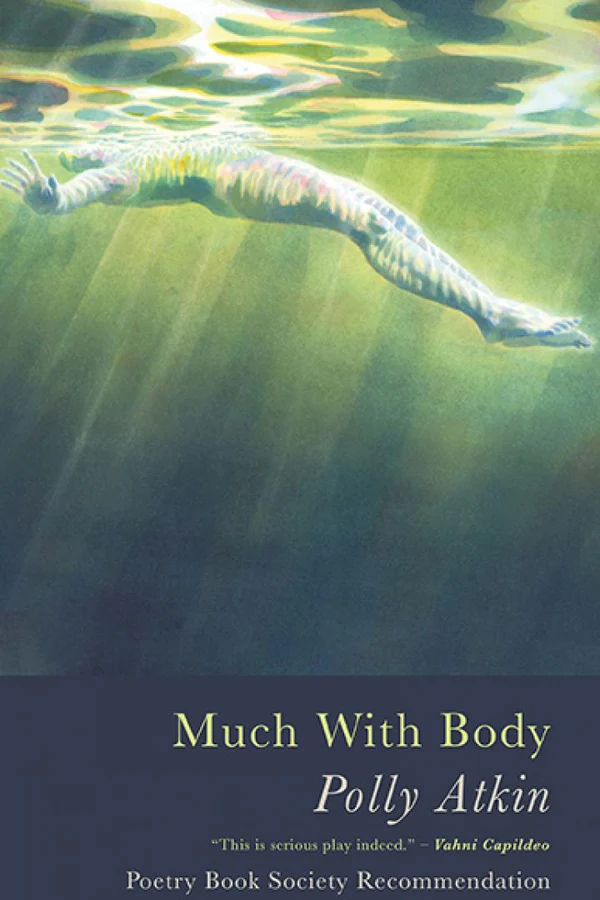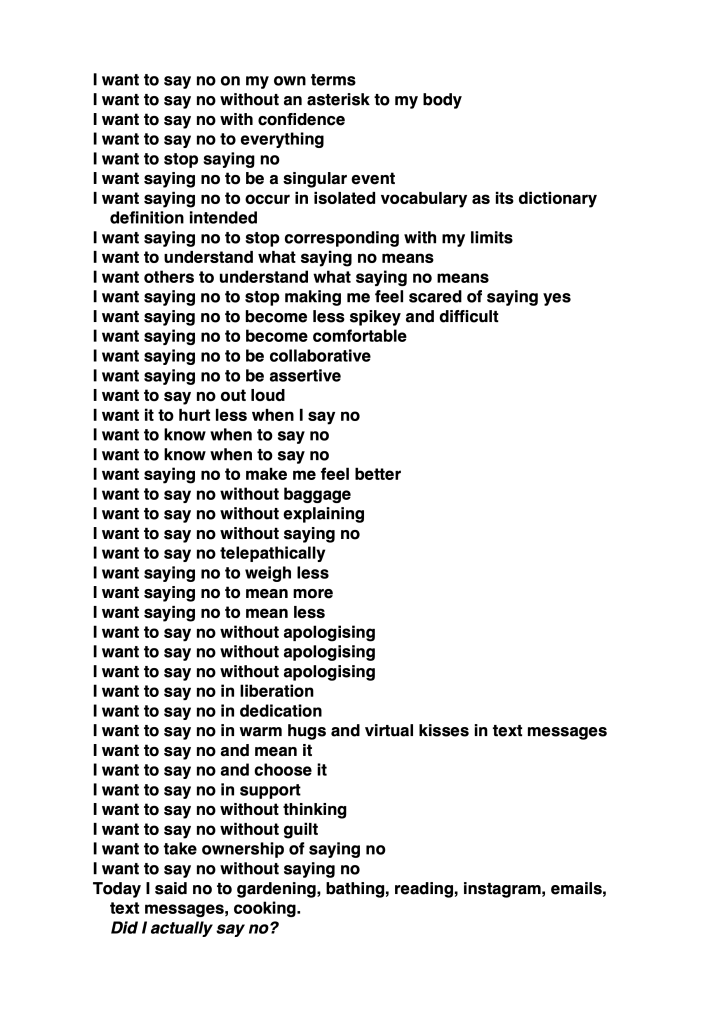
When describing what process means to me in my practice, i continually find myself drawn to the poem Unwalking by Polly Atkin, which is featured in her 2021 collection Much With Body, published by Seren Books. It is a striking piece which really captures an atmosphere of sickness in such an embodied way. I love it, and find myself returning to it again and again, pulling at its imaginative terminologies and applying them to my own ideas of making/un-making.
“The body is what I cannot untake with me what I cannot
leave behind what i cannot not discover, continually, along the way”
Unwalking by Polly Atkin, which is featured in her 2021 collection Much With Body, published by Seren Books. Permission has been granted by the author to quote from this work here.
I love the richness of how she is inverting that sense of the body’s lacking, the body’s un-abled-ness, the body… not; how in it’s un-doing, it holds it’s own forever-presense, forever-doing, the un becoming full and energetically creative. It makes me think of a text i wrote a few years ago as part of my work for the 30/30 project in 2019. The prompt for the day was “how do you say no?”.

I like this way of approaching the innate sense of lacking in which illness and disability is fixed in society and culture, by sitting with it, in it; what do the no’s that we have to say/do/feel, embody for us? What happens when the unmoving, the unwalking, becomes the central journey? what expansive landscapes can be found when we consider the lacking as an entire other world, a world which is lived? I’ve been thinking a lot recently about illness and disability as place, and how exciting that is as a concept to explore. I am about to launch a curatorial project exploring art and disability in rural spaces called Further Afield, and the artists featured in the programme have created some beautiful works interrogating this idea of the body in place and the place in/as the body. It’s such an exciting premise to think about, using the body as the central space in which all journeys occur and all worlds emerge and interact. Another line from Polly’s Unwalking that i love:
“There are destinations without journeys, things you will never see if you
walk walk walk walk walk
…
I do not have to move to be moved. Are you moved?“
Unwalking by Polly Atkin, which is featured in her 2021 collection Much With Body, published by Seren Books. Permission has been granted by the author to quote from this work here.
Here the location is the body, and this further inversion of action is stretched; movement becoming a dense, energetic rock containing life after life after life; stillness becoming a hum; motion condensed into a clenched fist; action stored in the knuckles of a held breath.
the line “I do not have to move to be moved”, is a masterpiece in capturing how powerful some moments of sickness can be. I can have the most intimate, magical connections with other people whom i have never been in the same room with, all whilst i lie in bed in the dark. ideas arrive in my head at times when i am at my most debilitated by pain. inspiration often occurs amongst the dullness, the ordinary fabric of a sick life. The prompt “Are you moved?” really strikes me as an invitation to a non-sick/non-disabled reader to not only consider this world that goes unnoticed, unseen, untouched, but to also consider what a kind of lacking could embody in the the non-disabled world, how perhaps in a world of constant movement, the lack is found in the absence of the un-moving; so many are simply not unmoved. Again, the body is repositioned as this central space, it becomes the space. I love exploring scale in my work in this same way, how so much of illness for me is about how to find vastness within the small and the cramped. For me, when Polly conjures this image of stillness, she is also capturing vastness; i want to take this central space of the body and zoom into in until it becomes massive, boundless. In this way it is impossible for making to be anything other than forever-present, a constant conjuring and collaboration with my body’s own limits.